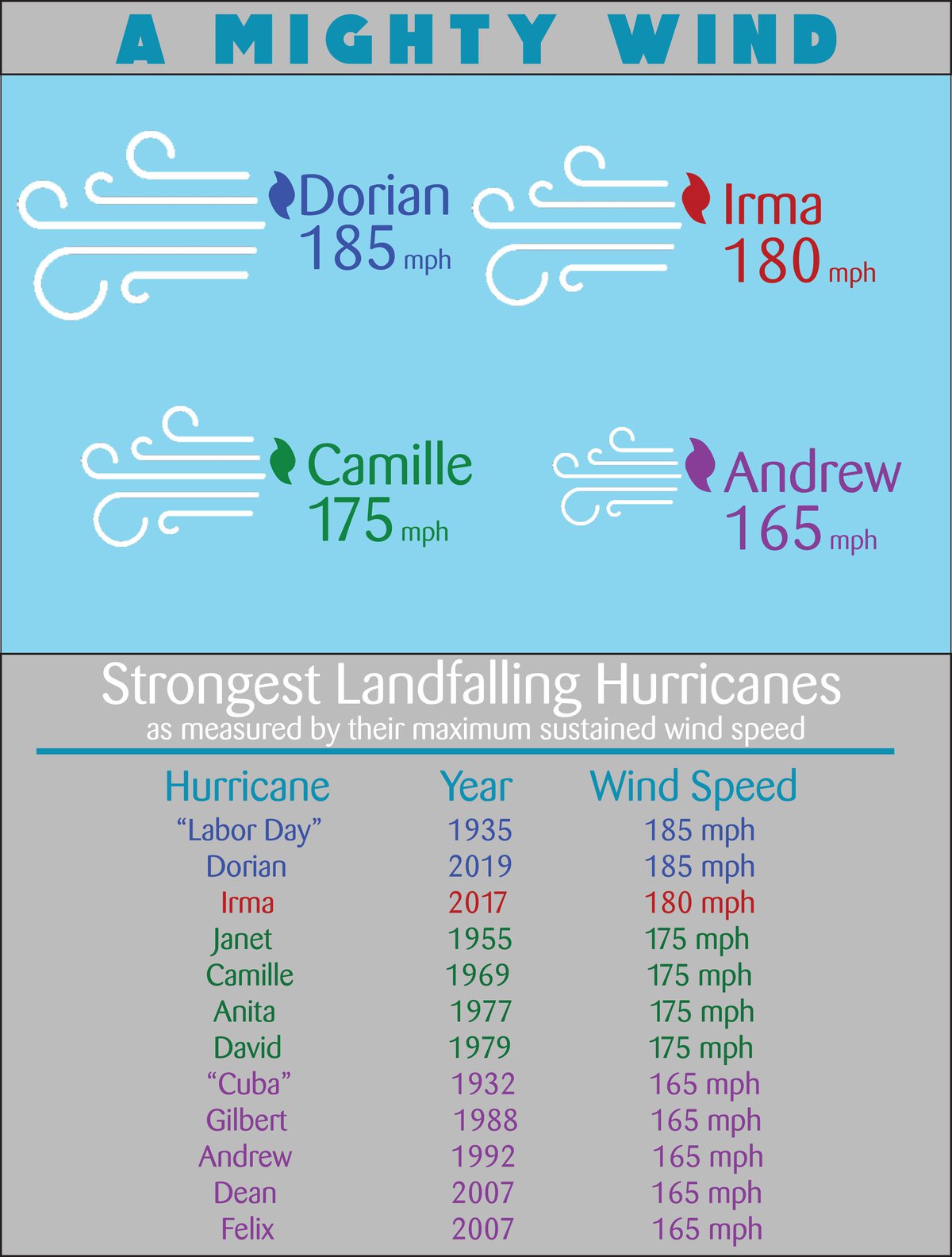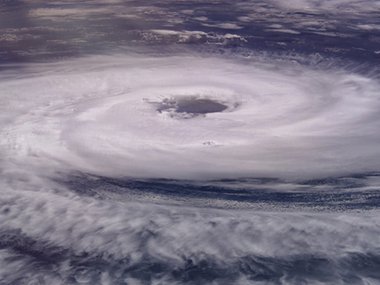Question Your World: Why Was Hurricane Dorian So Historic?
Hurricane Dorian just made its way through the Atlantic, causing much havoc and harm along the way. This storm broke some big records as it moved along its path, and now we can look back and study the storm's impacts. Why was Hurricane Dorian so historic?
Football season was kicking off, but something else grabbed the attention of the media last week. Hurricane Dorian. Hurricane Dorian was absolutely a historic storm, the strongest on record to happen east of Florida. Even though it decreased in intensity, this historic storm still traveled all the way to Canada with 75 mile-per-hour winds. It also holds the record for fastest land-falling winds on record with winds reaching 185 mph, as it made landfall at the Abaco Islands in the Bahamas. Some of the most devastating damage was done when it slowed its forward motion and then virtually stalled over the Bahamas, dumping 35 inches of rain while moving as slow as 1 mile per hour.

Scientists are watching these storms closely, since the warming ocean is one of the prime ingredients making these extreme storms even more extreme. In 2008, a report was published in the journal Nature stating that there’s a 7% increase in maximum winds in the most intense storms for every degree or so that the ocean warms up.
Dorian's destructive path speaks to a greater story here as scientists around the world agree that these extreme events require immediate action. These increasingly intense and extreme storms are a great reason to begin the conversation about how and why we humans build along our coasts. Our existing infrastructure was not built to handle the impacts of these storms nor are they adequate for the even more intense storms that many scientists have forecast as our oceans continue to rise and warm.
Dorian was the fourth of the seven named storms so far this season, two of those have become full-on hurricanes. Scientists encourage citizens to pay attention to these storms for the rest of this year’s hurricane season, now through November 30.

